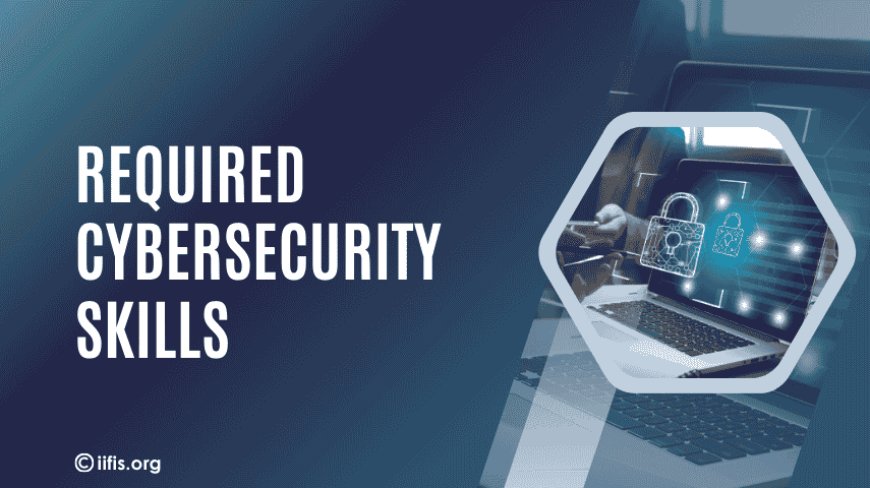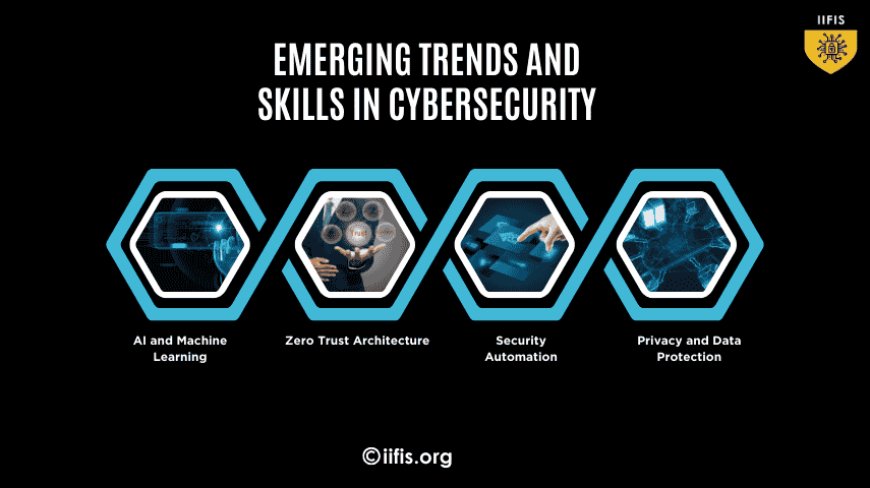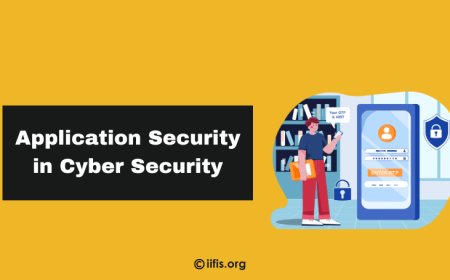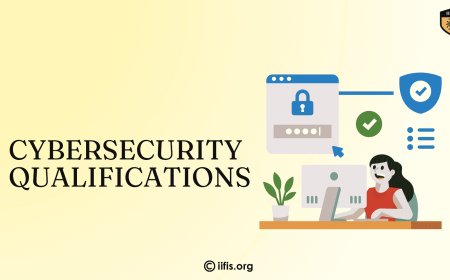Cybersecurity Skills Required for a Successful Career
Learn key cybersecurity skills for a thriving career, including network protection, ethical hacking, data security, and the latest industry trends to stay ahead.

In my time working in cybersecurity, I've learned that protecting networks, finding vulnerabilities through ethical hacking, and keeping data safe with encryption are all crucial for securing information. Network security helps keep your systems safe from unwanted access, ethical hacking finds weaknesses before bad actors can take advantage, and data encryption ensures sensitive information stays protected. Being ready to respond quickly to any security issues also helps minimize damage when things go wrong.
Keeping up with new technologies like AI and machine learning has been a game-changer, as they help predict and defend against new cyber threats. Understanding these key areas has helped me create stronger security strategies to keep both personal and business data safe in today’s digital world.
What is cybersecurity?
From my experience, cybersecurity is all about ensuring that systems, networks, and data are protected from cyberattacks, unauthorized access, and damage. With the increasing reliance on digital platforms, cybersecurity has become essential for safeguarding everything from personal information to financial records. Here’s what I’ve learned about it:
-
Protecting systems and data: Cybersecurity helps to guard against hackers and malware.
-
Comprehensive protection: It involves securing networks, computer systems, and sensitive information.
-
Keeping businesses safe: In my experience, businesses can’t afford to overlook their security—it’s the backbone of digital trust.
Importance of Cybersecurity
The importance of cybersecurity has grown tremendously over the years. As technology advances, the risks associated with it have become even more significant. Here’s why I think it’s essential:
-
Rising cyber threats: With more technology in use, the risk of cyberattacks also increases.
-
Data breaches can be catastrophic. I've seen how a single breach can affect millions of people and damage a company’s reputation.
-
Business continuity: Effective cybersecurity not only prevents data loss but also ensures that business operations run smoothly and customers’ privacy is maintained.
Need for Cybersecurity
Over time, I’ve observed how the need for cybersecurity skills has grown. As cyberattacks become more sophisticated, businesses are realizing just how critical it is to have skilled professionals in this field. Here’s why I believe cybersecurity professionals are more in demand than ever:
-
More complex cyber threats: Attacks are becoming harder to prevent and detect, which increases the need for experts.
-
Financial and reputational damage: I’ve seen firsthand how a cyberattack can cost businesses millions and harm their reputation.
-
Protection for critical data: As organizations depend on digital assets more than ever, it’s essential to ensure they’re protected from evolving threats.
Growing Demand for Cybersecurity Professionals
The demand for cybersecurity skills professionals is on the rise. Cybersecurity job openings have significantly increased, and organizations are actively seeking individuals with specialized skills. The increasing number of cyberattacks, along with the expansion of cloud technologies, the Internet of Things (IoT), and remote working, has amplified the need for experts in the field. According to reports, the global shortage of cybersecurity professionals has reached millions, making it one of the most promising career paths.
Technical Skills Required for Cybersecurity
To succeed in cybersecurity, professionals must develop a wide range of technical skills. Here are some of the most important technical competencies:
-
Network Security: Understanding the design and architecture of networks, including firewalls, intrusion detection systems, and virtual private networks (VPNs).
-
Cryptography: Mastering encryption methods and protocols to protect sensitive data.
-
Penetration Testing: Performing security assessments and identifying vulnerabilities before hackers can exploit them.
-
Cloud Security: Securing cloud infrastructure and data, especially with the growing trend of cloud adoption in businesses.
-
Incident Response: Being able to detect and respond to security incidents quickly and effectively.
-
Malware Analysis: Analyzing malicious software to understand its behavior and prevent future attacks.
Soft Skills for Cybersecurity
While technical knowledge is vital, soft skills are also necessary for a successful career in cybersecurity. These skills help professionals navigate complex situations, work collaboratively, and communicate effectively.
-
Problem Solving: The ability to think critically and develop solutions to complex cybersecurity problems is crucial.
-
Attention to Detail: Cybersecurity requires a keen eye for spotting vulnerabilities or suspicious activities.
-
Communication: Professionals must communicate clearly and effectively with both technical and non-technical stakeholders, especially during incident response.
-
Adaptability: The cybersecurity landscape changes rapidly, so being flexible and willing to learn new tools and techniques is essential.
Emerging Trends and Skills in Cybersecurity
The cybersecurity field is constantly evolving, and professionals need to stay ahead of emerging trends and threats. Some key areas to focus on include:
-
AI and Machine Learning in Cybersecurity: Leveraging artificial intelligence to detect anomalies, automate threat hunting, and predict potential security incidents.
-
Zero Trust Architecture: A security model that assumes no one, whether inside or outside the network, can be trusted without proper verification.
-
Security Automation: Automating repetitive security tasks to improve efficiency and reduce human error.
-
Privacy and Data Protection: With stricter data protection regulations (such as GDPR), there is a growing demand for expertise in privacy and compliance.

Certifications and Education for Cybersecurity
While hands-on experience is critical in cybersecurity, certifications and formal education can significantly enhance your credentials. Some of the most recognized cybersecurity certifications include:
-
Certified Information Security Manager (CISM)
-
CompTIA Security+
-
Certified Cloud Security Professional (CCSP)
In addition to certifications, pursuing a degree in computer science, information technology, or cybersecurity can provide a strong foundation in the field. Many universities and online platforms also offer specialized programs and boot camps designed to fast-track your career in cybersecurity.
Building a Career Path in Cybersecurity
Building a successful career in cybersecurity requires both a strategic approach and continuous learning. Here are some steps to help you get started:
-
Gain Practical Experience: Hands-on experience is invaluable in cybersecurity. Internships, volunteer work, or personal projects can help you gain real-world experience.
-
Learn Continuously: The field of cybersecurity is constantly evolving. Stay up to date with the latest trends, tools, and technologies by attending webinars, conferences, and online courses.
-
Network with Professionals: Join cybersecurity communities, attend meetups, and connect with experts to gain insights and build your network.
-
Seek Specialization: As you progress in your career, consider specializing in a niche area of cybersecurity, such as ethical hacking, incident response, or cloud security.
-
Start with Entry-Level Roles: Roles such as security analyst or network administrator can provide a strong foundation before moving on to more senior positions, such as cybersecurity consultant or chief information security officer (CISO).
Cybersecurity is an evergreen field that helps protect digital information from growing cyber threats. As technology advances, the need for skilled professionals who can secure systems, networks, and data is more important than ever. Gaining the right cybersecurity skills, staying updated with the latest trends, and obtaining certifications are essential steps to building a successful career in cybersecurity. The demand for cybersecurity experts will continue to rise, offering many opportunities for those who are passionate about protecting against cybercrime and making a real difference in the digital world.
























